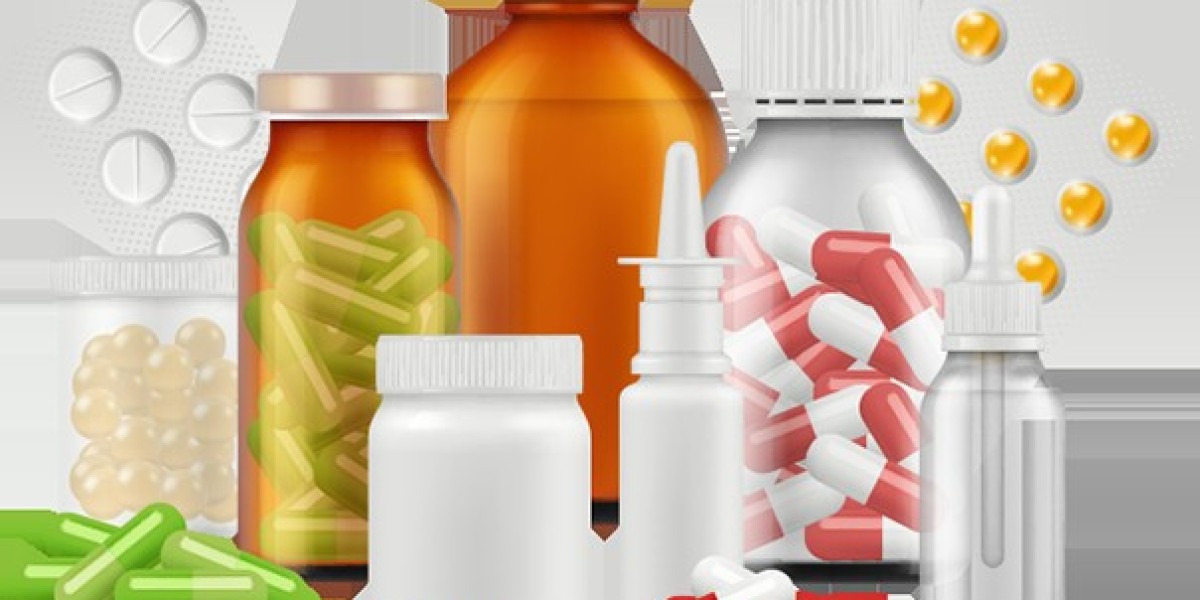The life sciences industry is a vast and dynamic sector that encompasses the study and application of biology, biotechnology, pharmaceuticals, healthcare, and more. The products developed and distributed in the Lifesciences industry impact millions of lives, from groundbreaking medical treatments to diagnostic tools and research equipment. A critical part of this intricate network is the role of wholesale distributors who bridge the gap between manufacturers and end-users, such as hospitals, clinics, pharmacies, research institutions, and laboratories.
Lifescience wholesale distributors play an essential role in ensuring that life-saving products and services are delivered efficiently and on time. This article will explore the importance of life sciences wholesale distributors, their operational processes, challenges, and the benefits they offer to various sectors within the industry.
What are Life Science Wholesale Distributors?
Life science wholesale distributors are companies or entities that buy life science products in bulk from manufacturers and sell them to a variety of clients, including hospitals, universities, pharmaceutical companies, clinics, research facilities, and other institutions involved in healthcare and life sciences. These distributors serve as intermediaries between the manufacturers and end-users, managing inventory, logistics, pricing, and supply chain efficiency.
Wholesale distributors in the life sciences industry typically deal with a wide range of products, including medical devices, laboratory reagents, pharmaceuticals, clinical research tools, diagnostic equipment, and consumables. Their role is to facilitate the smooth and timely delivery of these products, ensuring that life science professionals have access to the materials and tools they need to conduct research, provide healthcare, or develop new therapies.
Key Functions of Life Science Wholesale Distributors
- Inventory Management and Supply Chain Coordination
One of the primary roles of life science wholesale distributors is managing inventory. These distributors ensure that there is a steady and sufficient supply of life science products by tracking stock levels, predicting demand, and coordinating with manufacturers for restocking. Efficient inventory management is crucial in the life sciences industry, where certain products—such as diagnostic reagents, vaccines, and medical devices—have limited shelf lives or require temperature-controlled storage.
Distributors also play a vital role in coordinating the logistics of moving goods from the manufacturer to the end-user. This involves maintaining relationships with shipping companies, monitoring transportation times, and making sure products reach their destinations on time and in the required condition. Ensuring the integrity of sensitive life science products is of utmost importance, especially when dealing with biologics, vaccines, and chemicals that can be affected by temperature fluctuations or improper handling.
- Regulatory Compliance
The life sciences industry is highly regulated, with stringent standards governing product quality, safety, and efficacy. Wholesale distributors are responsible for ensuring that the products they handle meet regulatory requirements set by governing bodies such as the U.S. Food and Drug Administration (FDA), European Medicines Agency (EMA), and other local health authorities. This includes ensuring that products have proper certifications, maintaining records of batch numbers, expiration dates, and handling protocols to comply with regulations.
Distributors often collaborate closely with manufacturers to ensure that all products are correctly labeled, stored, and transported according to compliance guidelines. For example, pharmaceutical distributors need to ensure that drugs are safely handled and that all necessary documentation is included when shipped. This also involves compliance with Good Distribution Practice (GDP) and Good Manufacturing Practice (GMP) standards, which help maintain product quality throughout the supply chain.
- Customer Support and Education
In addition to their logistical responsibilities, Lifescience Wholesale Distributors also provide customer support and education to their clients. This is particularly crucial when distributing specialized products, such as laboratory equipment or complex pharmaceuticals, that require expertise in their use. Distributors may offer training sessions, technical support, or troubleshooting services to ensure that healthcare providers, researchers, or pharmaceutical companies can make the most of the products they purchase.
Distributors may also assist in setting up and installing specialized equipment, helping to resolve issues related to product compatibility or usage. For clients in the research and healthcare sectors, distributors can provide guidance on how to handle certain products, ensuring safe and proper use.
- Pricing and Market Access
Wholesale distributors play a critical role in determining the price points of life science products. They work with manufacturers to negotiate pricing structures and offer discounts based on bulk orders or long-term contracts. By purchasing in bulk, distributors can offer more affordable prices to healthcare providers, research institutions, and hospitals, which often need large quantities of specialized products.
Furthermore, distributors provide market access to products from international or smaller-scale manufacturers. These smaller manufacturers may not have the infrastructure to distribute their products globally, so they rely on wholesalers to get their products into the market. This expands the range of products available to end-users while helping manufacturers to reach new markets.
Challenges Faced by Life Science Wholesale Distributors
While life science wholesale distributors play an essential role in the supply chain, they face several challenges in their day-to-day operations. Below are some of the key challenges faced by distributors in this sector:
- Supply Chain Disruptions
Life sciences wholesalers are increasingly subject to global supply chain disruptions. Factors such as natural disasters, political instability, trade restrictions, and transportation delays can disrupt the availability of essential products. For example, the COVID-19 pandemic created supply chain bottlenecks that affected the availability of critical medical supplies, such as PPE and ventilators.
Distributors need to have contingency plans in place to address these disruptions. They may diversify their suppliers, work closely with logistics providers, and create safety stock to avoid stockouts. However, such measures can add to the cost of doing business and impact the efficiency of the supply chain.
- Product Traceability
With the growing importance of transparency in the supply chain, product traceability is a significant challenge for life science wholesale distributors. Many products, especially pharmaceuticals and medical devices, require strict tracking systems to ensure that they are authentic and have not been tampered with. In the event of product recalls or adverse reactions, distributors must be able to trace products quickly and accurately to prevent harm to patients and avoid regulatory penalties.
Technological advancements in blockchain and RFID tracking systems are being explored as solutions to improve traceability. These technologies offer real-time tracking and help ensure that products are authentic, properly stored, and delivered safely.
- Regulatory Changes and Compliance Issues
The constantly evolving nature of regulatory standards presents another challenge for Edwards Lifesciences Figma distributors. Frequent updates to guidelines and regulations, such as changes in FDA requirements or new EU regulations, mean that distributors must stay informed and ensure they are in compliance. Failure to comply with regulations can result in fines, penalties, or the loss of business licenses, which can have a serious impact on operations.
To mitigate this challenge, many distributors invest in compliance teams, legal advisors, and training programs to ensure that their operations meet the highest standards. They must also stay on top of global regulatory differences, especially when managing cross-border shipments.
Benefits of Working with Life Science Wholesale Distributors
There are numerous advantages to working with life science wholesale distributors, including:
- Cost Savings
Distributors offer significant cost savings to end-users by purchasing products in bulk and passing on the savings. Healthcare institutions and research organizations can benefit from lower prices, making it easier for them to manage costs while still obtaining the essential products they need.
- Wide Selection of Products
Wholesalers offer a broad selection of life science products, which can save time and effort for clients looking to procure a range of items from different manufacturers. Distributors also enable smaller or niche manufacturers to reach a larger market, offering clients access to new or specialized products.
- Reduced Administrative Burden
By working with a single distributor, institutions can reduce the administrative burden of managing multiple suppliers and shipments. Distributors take on many of the logistical responsibilities, such as tracking orders, handling returns, and managing documentation, allowing customers to focus on their core activities.
- Expert Knowledge and Support
Distributors bring valuable knowledge of life science products and industries. They are often well-versed in the latest trends, product developments, and regulatory changes, offering expert guidance to clients. This makes it easier for customers to make informed purchasing decisions and improve operational efficiency.
Conclusion
Life science wholesale distributors are critical players in the healthcare, biotechnology, and pharmaceutical industries. They ensure the timely delivery of products, manage inventory and supply chains, comply with complex regulations, and provide valuable customer support. Despite the challenges they face, such as supply chain disruptions and regulatory compliance, distributors continue to provide essential services that enable life science professionals to focus on their work, from research and development to patient care.
As the life sciences industry evolves, the role of Charlie Naylor Key Lifesciences distributors will become increasingly important in facilitating innovation, ensuring product availability, and navigating regulatory changes. Their efforts in ensuring efficient logistics, cost savings, and access to specialized products will remain key to the success and growth of the industry.







